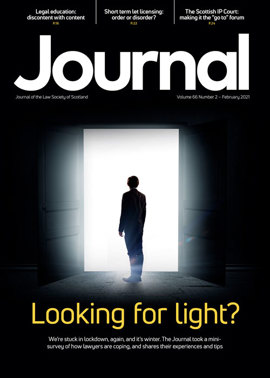Employment: Can employers require staff vaccination?
The past few months have seen the rollout of COVID-19 vaccinations across the UK. While the availability and speed of the process are being questioned daily in the press, one issue has been brought to the forefront of discussions amongst clients – whether or not they can mandate their staff to have this vaccination.
While this might seem like an obvious solution to make our way out of the pandemic that we have been subject to for almost 12 months, there are some factors which need to be considered by employers before taking a “no jab, no job” approach with their staff or potential staff.
The requirement to have the vaccine might be seen in some industries as being a “reasonable instruction”, and it is likely that this will be the case in health and social care sectors. It is not unusual for workers in these sectors to be required to disclose their vaccination records as part of the recruitment process. Therefore the COVID-19 vaccination is likely to fall into this category. However, for other employers there is unlikely to be a situation where requiring an employee to be vaccinated is a requirement for their role, and particularly not one which would necessarily give rise to a fair dismissal.
Any variation in treatment between those who have and those who haven’t been vaccinated may amount to indirect discrimination. For example, the current vaccination programme has NHS and social care workers being vaccinated first, followed by the over 80s, over 70s and over 65s. With the working population being older, there are potential indirect age discrimination issues for not recruiting a younger member of staff who has not been vaccinated. Similarly, failing to recruit someone on the basis that they have not been vaccinated or have chosen not to be vaccinated could directly and indirectly discriminate against someone who is pregnant or breastfeeding. While the vaccination has been given the green light for these categories, medical advice is that it is down to the individual patient as to whether she wishes to receive the vaccine.
Finally, but just as important, requiring evidence of vaccination gives rise to significant data protection issues. Employers would have to consider why they need evidence of vaccination and whether it is appropriate for their business.
These conversations within firms and between clients are likely to be ongoing over the coming months, if they are not already taking place, and therefore it is important to consider the likely legal implications of such an approach.
Regulars
Perspectives
Features
Briefings
- Criminal court: Discount season
- Family: Capital values in uncertain times
- Employment: Can employers require staff vaccination?
- Human rights: Protecting the child claimant
- Pensions: a bill with teeth
- Charities: commerce as public benefit?
- Property: Playing safe: on the right track?
- In-house: Wide world of in-house
In practice
- Priorities for our Parliament
- The Word of Gold: The gift that keeps on giving
- TRS: more trusts, more information, more access
- A proper conclusion
- The Eternal Optimist: Putting resolve into resolutions
- Appreciation: Professor Emeritus Robert Rennie
- Ask Ash: Trainee in a rut
- Royal Faculty invites new members







